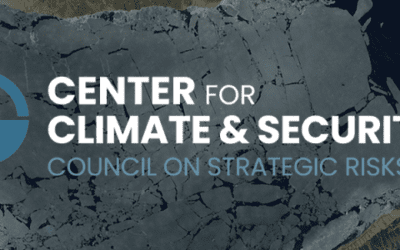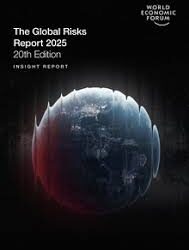by Zoë Schlanger in The Atlantic…Global warming is moving faster than the best models can keep a handle on.
Leadership in the polycrisis: How UK defense training can help us navigate a future of unprecedented environmental disruption
by Laurie Laybourn and Matt Ince in the Center for Climate and Security…Explicit investments in the development of emerging as well as current leaders must be considered a core element of building resilience within the context of the deepening climate and ecological crisis. Better leadership—at all levels—will support decision advantage under more challenging conditions. A failure to make these investments in leaders is likely to significantly undermine the effectiveness of societies to handle growing systemic risks and, in turn, to ensure that collective sustainability efforts meet the critical threshold needed to avoid catastrophic runaway environmental change.
The impossible math of philanthropy
by Hans Taparia and Bruce Buchanan in The New York Times…More often than not, charities work to mitigate harms caused by business. Every year, corporations externalize trillions in costs to society and the planet. Nonprofits form to absorb those costs but have at their disposal only a tiny portion of the profits that corporations were able to generate by externalizing those costs in the first place. This is what makes charity such a good deal for businesses and their owners: They can earn moral credit for donating a penny to a problem they made a dollar creating.
This climate activist has a plan to defeat trumpism. He’s in prison.
by Aaron Gell in The New Republic…Roger Hallam is serving a five-year sentence for advocating direct action during a videoconference. It hasn’t stopped him.
Blueprint 2025; Gerry Salole in conversation with Lucy Bernholz
Youtube conversation between Gerry Salole and Lucy Bernholz…We are deeply moved to share insights from an extraordinary dialogue between Lucy Bernholz and Gerry Salole on the launch of Blueprint 2025. This conversation couldn’t be more timely as we face unprecedented challenges to democracy worldwide.
At some nonprofits, a delicate balance of grief and strategy
by Sara Herschander in The Chronicle of Philanthropy…After the election, many leaders are balancing emotional support for rattled staff with practical preparations for funding cuts and policy changes.
There are many ways Trump could trigger a global collapse. Here’s how to survive if that happens
by George Monbiot in The Guardian…It could be wildfires, a pandemic or a financial crisis. The super-rich will flee to their bunkers – the rest of us will have to fend for ourselves
Global risks report 2025
by Mark Elsner, Grace Atkinson, and Saadia Zahidi in the World Economic Forum…The Global Risks Report 2025 presents the findings
of the Global Risks Perception Survey 2024-
2025 (GRPS), which captures insights from over
900 experts worldwide. The report analyses global
risks through three timeframes to support decisionmakers in balancing current crises and longer-term
priorities.
Our common purpose
from the American Academy of Arts & Sciences…Our Common Purpose: Reinventing American Democracy for the 21st Century, a report of the American Academy’s Commission on the Practice of
Democratic Citizenship, comes at a pivotal moment in the history of the
American experiment.
Creative but disorganised: why philanthropy won’t solve the polycrisis
by Barry Knight in Alliance Magazine…‘There are massive problems; climate, conflict, the economy are chief among them. Our international system for dealing collaboratively with any problem that crosses a border is out of date and needs to be rethought.’






